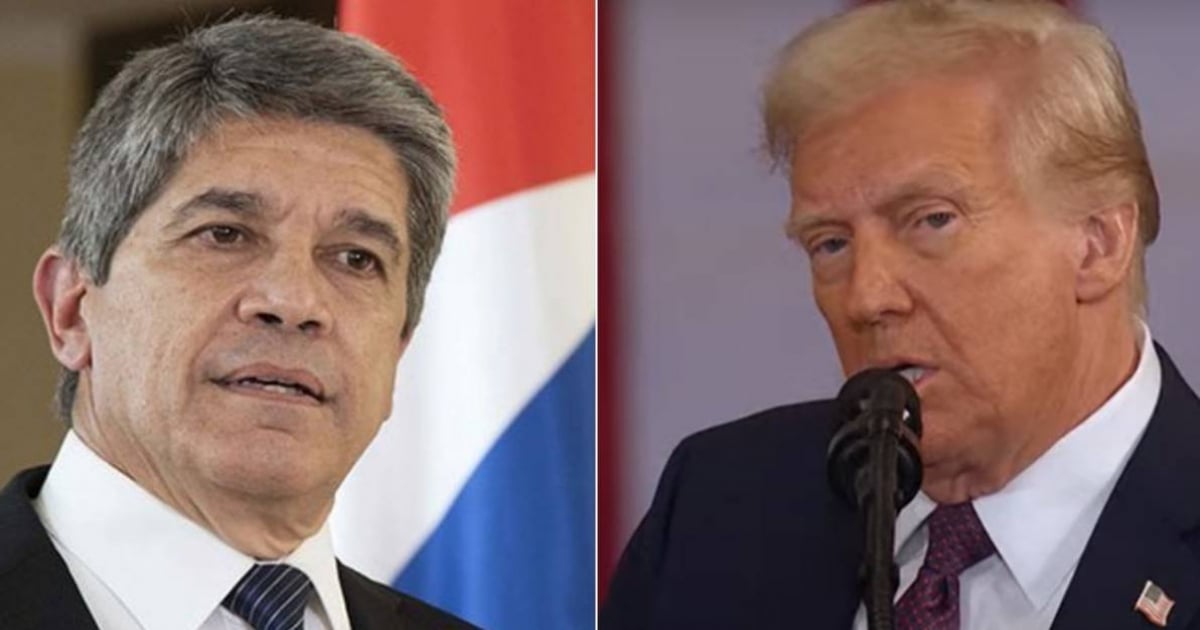
Related videos:
The Deputy Minister of Foreign Affairs of Cuba, Carlos F. de Cossío, stated that U.S. policy is undergoing a radical shift and accused President Donald Trump of having similarities to the fascist government of Adolfo Hitler.
"The new doctrine of U.S. foreign policy is: 'promoting peace through strength.' Hitler also wanted peace, a productive, prolific, 'undesirables'-free, unified, and larger German state. For this, war was simply a means," Cossío expressed on the social network X.
Trump arrived at the White House on January 20 to begin his second term. On his first day as president, he approved several executive orders that directly and indirectly affect the Cuban regime.
The most important of these measures was revoking Cuba's removal from the List of State Sponsors of Terrorism. The Cuban leader Miguel Díaz-Canel Bermúdez reacted immediately, questioning Trump's decision and accusing him of promoting a "cruel economic war" against the Cuban people.
"President Trump, in an act of arrogance and disregard for the truth, has just reinstated the fraudulent designation of Cuba as a state sponsor of terrorism. This is not surprising. His aim is to continue strengthening the cruel economic war against Cuba for the purpose of domination," said Díaz-Canel.
Additionally, he blamed the United States for the economic and migration crises that have affected the Caribbean country since 2020.
"The result of the extreme economic sanctions imposed by Trump has been to cause shortages in our people and a significant increase in the flow of migration to the U.S. This act of mockery and abuse confirms the discrediting of the lists and unilateral coercive mechanisms of the U.S. government," Díaz-Canel assured.
The White House indicated that the revocation responds to strategic interests of the Trump Administration and considers that the Cuban government poses a threat by supporting international terrorist activities. Being on the aforementioned list implies economic sanctions and financial and commercial restrictions for Cuba.
Frequently Asked Questions about Cuba-U.S. Relations and the Impact of Trump
Why did the Cuban deputy minister compare Trump to Hitler?
Deputy Minister Carlos F. de Cossío compared Trump to Hitler for adopting a foreign policy based on the "promotion of peace through strength." Cossío argued that, like Hitler, Trump uses war as a means to achieve his objectives, in this case, reversing measures that directly affect Cuba, such as its reclassification as a state sponsor of terrorism.
What does it mean for Cuba to be on the list of countries that sponsor terrorism?
Being on the list of state sponsors of terrorism entails economic sanctions, financial and trade restrictions for Cuba. This impacts the island's economy by limiting its international transactions and access to financial markets, further complicating the internal economic situation.
How has the Cuban government responded to Trump's measures?
The Cuban government has condemned Trump's measures, describing his reinstatement on the list of state sponsors of terrorism as an act of "arrogance and contempt for the truth." Miguel Díaz-Canel accused Trump of promoting a "cruel economic war" against Cuba and blamed the U.S. for the economic and migration crisis on the island.
What consequences could a second term for Trump have for Cuba?
A second term for Trump could intensify economic and diplomatic sanctions against Cuba, including increased restrictions on trade and remittances. This could worsen the economic crisis on the island, which is already facing difficulties due to U.S. policies and its own internal inefficiencies.
What stance has Díaz-Canel taken on Trump's policies?
Díaz-Canel has taken a critical stance towards Trump's policies, particularly the economic embargo, which he blames for many internal problems in Cuba. He has reaffirmed that Cuba will not yield to external pressures and will continue to defend its sovereignty and independence.
Filed under: